Deflationism and Wittgenstein
Paul Horwich interviewed by Richard Marshall.

Paul Horwich is the king of the deflationists. He thinks all the time about the advantages of deflationism about truth over its rivals, including whether debates about truth are independent of arguments about realism, about Wittgenstein's meaning-as-use theory, about deflationism's link to vagueness, and about Michael Lynch, as well instrumentalism in science, Wittgenstein's metaphilosophy, about why science has done so well and traditional philosophy so badly and why he attempts to make Wittgenstein's position clear, defensible and worth taking seriously. Over to you bub!
3:16: What made you become a philosopher? Were you always asking questions or did something happen?
Paul Horwich: I had almost no sense of what philosophy was until I was 16 years old and my chemistry teacher gave us a homework assignment to write something about the methodology of science. The reading and thinking I did for that project was an eye-opener and I was more-or-less hooked. But it took a while to sink in. At the time (within the British system of early specialization) I was committed to a science track; I studied nothing beyond physics sand mathematics for my BA at Oxford; and it was only in Graduate School at Yale and then Cornell that I began to take courses in philosophy. In the intervening five years I merely dabbled -- flipping through books (including the Tractatus) in the library, arguing with my friends in the pub about free will, etc. But those experiences helped solidify a suspicion that philosophy, rather than physics, was where my interests and abilities really lay.
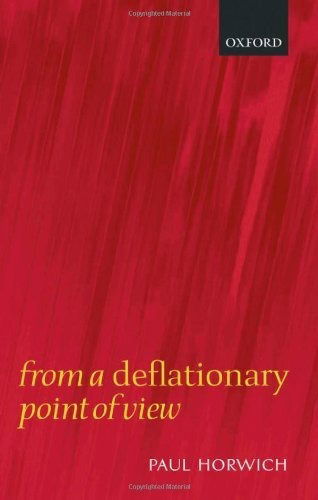
3:16: You’re well known in philosophical circles as a deflationist about truth. This is a position that contrasts with correspondence conceptions, semantic conceptions, coherence, verificationist and pragmatic conceptions of truth. The name signals what you’re doing here but can you spell out both what your approach does and why it’s better than the alternatives?
PH: The main advantages that deflationism has over the traditional accounts of truth are (i) that it dispenses with the gratuitous assumption that the property of ‘being true’ has a unified underlying nature, awaiting our discovery; (ii) that its positive account of the concept of truth – in terms of the equivalence of “<p> is true” to “p” itself -- isn’t subject to clear counter-examples or circularity objections, as are the traditional accounts; (iii) that it meshes beautifully with a compelling view of why we have the concept of truth (it’s a needed device of generalization), and (iv) that it has a beneficial effect on the rest of philosophy insofar as it teaches us to avoid the blind alleys of theories (of meaning, of reality, of logic, of epistemic norms, etc.) in which the property of truth is given a substantive explanatory role.
Let me amplify a little. The traditional accounts of truth aimed, each in their own way, to specify what all truths have in common, i.e. what the basic nature of truth is, i.e. which single underlying property any proposition needs to have in order to qualify as true. It was taken for granted that truth must have some such defining essence – for how else could we explain why true beliefs are valuable and how best to go about obtaining them. The problem was to give the right definition. But most philosophers would agree that none of the traditional proposals (truth as fitting the facts, or as provability, or as utility, or as consensus) is acceptable.
Enter deflationism, according to which this failure is quite unsurprising since we never had any good reason in the first place to think that truth has a defining nature. Instead, we should suppose that our concept is fully given by the rule that any attribution of truth to a proposition be regarded as trivially equivalent to the proposition itself (e.g. is equivalent to .. Now one might wonder how the concept associated with such a triviality could possibly be useful. But it turns out to be just what’s needed to provide a device of generalization that adds considerably to the expressive power of language and thought. By means of it we can say “Everything he asserted was true” (instead of “If he asserted that there’s life on Mars , then there’s life on Mars; and if he asserted that there’s no life on Mars, then there’s no life on Mars; and if he asserted that lying is wrong, then lying is wrong, … etc., etc.“. Similarly, “All propositions of the form, "<p or not p> are true" and “One should wish that one’s beliefs be true” each enable us to say things that would otherwise be impossibly cumbersome to say.. Thus truth is not as profound a phenomenon as has often be assumed. Its role, even in philosophy, must be merely expressive rather than explanatory.
3:16: Are debates about truth independent from arguments about realism?
PH: When philosophers speak of being a ”realist” about Fs (e.g. electrons, numbers, values, or experiences) they may have in mind a variety of different positions. So let me consider this question with respect to the three conceptions of “realism” that are most prominent these days.
First, someone may be regarded as a realist about Fs simply in virtue of maintaining that there are such things, i.e. that Fs exist. No assumptions about truth will typically ground such a conviction (although the further conclusion, , will of course be deduced from it).
A second way of being a realist about Fs is to maintain, not merely that Fs exist, but that their existence is fundamental, i.e. irreducible to anything else. Someone who holds that experiences amount to dispositions to behave would qualify as an anti-realist (in the present sense) about mental phenomena. Similarly, someone ho identified God with the universe. Again such issues do not turn on views about the concept of truth.
Finally, there’s a form of “realism about Fs” according to which the notions of truth and falsity that apply to propositions about Fs are substantive and not fully captured by the equivalence schema. Philosophers (e.g. Hilary Putnam, Michael Dummett, Kit Fine) have attempted, in a controversial variety of way, to draw this distinction – to explain how we can separate those propositions whose truth would merely be deflationary from those whose truth is more ‘heavy duty’. (See Fine’s “The Question of Realism”). These issues of “realism” evidently do concern the concept of truth. But of course a thoroughgoing deflationist will have little time for them.
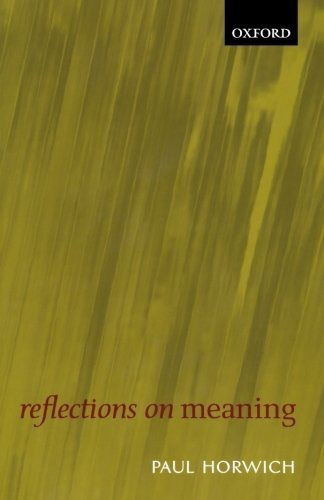
3:16: Is your approach largely a Wittgensteinian one that incorporates a use-theory of meaning or is it making stronger claims involving naturalism? I guess what you’re out to show is how semantics arise out of a fundamentally non-semantic world, so how does your theory do this? Are you of the belief that Wittgenstein himself was a kind of naturalist and that this explains his views about philosophy?
PH: Needless to say, you can perfectly well hold that this or that phenomenon is part of the spatio-temporal causal nexus (i.e. is naturalistic) without being a naturalist in general, that is, without holding that everything that exists is naturalistic. I am, as you say, a naturalist about meaning (because it seems clear that our words’ meaning what they do have causes and effects), and my development of Wittgenstein’s equation of meaning with use is supposed to vindicate that position. But I’m not a global naturalist because I think there are perfectly real things (such as numbers and sets and moral properties) that don’t enter into causal relations.
Moreover, I would interpret Wittgenstein as having just this combination of positions. The uses with which he identifies meanings are supposed to be more-or-less behavioristic. And as for naturalism in general, a paradigm of the sort of dangerous overgeneralization he warned against is our tendency to regard the merely unusual (such a non-natural entities) as too weird to exist! Thus it’s his view of philosophy that explains his view of global naturalism, rather than the other way around.
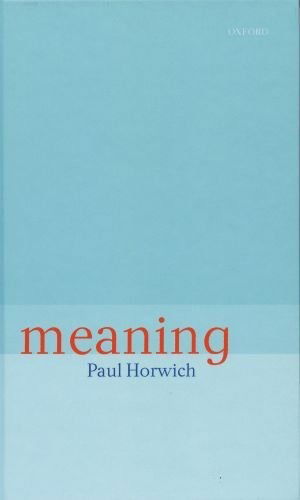
3:16: Without this particular approach to meaning, would deflationism as you conceive it flounder?
PH: No. Deflationism about truth does not depend on a view of meaning as use -- hence, not on the particular detailed implementation of that view that I have developed.
Deflationism is so-called because it holds that truth is much less important, much less profound, and much less in need of theorization, than has traditionally been assumed. As mentioned above, we grasp that superficial but useful concept merely in virtue of accepting the trivial equivalence of “ The proposition that dogs bark is true” to “Dogs bark”, of “ The proposition that generosity is good is true” to “Generosity is good”, and so on. But this implies that our concept of proposition – of the meaning of a sentence – is prior to our concept of truth. So we must confront the question of what it is about a given sentence that gives it the distinctive meaning it has. Thus deflationism does requires that there be some way – not involving the concept of truth – of explaining what it is for a sentence to express a given proposition. But, absent further considerations going well beyond deflationism, that way need not be in terms of use – and certainly needn’t invoke the precise articulation of ‘use’ that I myself defend.
3:16: Several positions seem to follow from deflationism. So in respect to vagueness, Sorensen claims that an epistemic solution ‘is hard to avoid’ and he cites you in ‘Truth’ as saying just that. Is this a case of you following the deflationary path to wherever it goes, or were there already reasons for going that way independently?
PH: If deflationism is correct – if truth is a mere device of generalization whose use is entirely captured by the equivalence of “<p>is true” to “p” – then it’s natural to treat falsity in a parallel way, as captured by the equivalence of “<p>is false” to “not p”. But in that case the claim, “Proposition, <K>, is not true and not false either”, couldn’t be right, since it would be equivalent to “not K and not not K” – which is a contradiction. Thus, according to deflationism, what results from applying a vague predicate (e.g. “bald”) to a borderline case cannot have no truth-value. But this is a purely negative result. Deflationism does not yield any positive account of what vagueness is, or of how the problems associated with vagueness ought to be solved. In particular, it does not tell us we must accept, e.g. “Everything is either bald or not bald”.-- And so it doesn’t dictate the ‘epistemicist’ view, whose distinctive feature is to insist that classical logic, including the law, “p or not p”, holds of vague pronouncements just as it does of clear ones.
3:16: Is your position regarding aesthetic non-cognitivism and emotivism similarly spiraling out of your deflationism? Can you say something about how you arrive at these positions?
PH: Again, the answer is that my views on these matters respect deflationism but are not implied by it. To explain what I mean, let me focus on moral normativity. According to old-fashioned emotivism (as proposed by A.J Ayer) “Torture is wrong” means nothing more than, “Boo for torture!”. – So it expresses a mere feeling rather than a belief, and can’t be true or false. I disagree with most of this, not because it violates deflationism (-- strictly speaking it doesn’t, since it doesn’t deny that every proposition has a truth-value --) but because it does too much violence to ordinary thought and talk to deny that moral debates involve genuine propositions and beliefs, which can perfectly well be true. Still, there is something in emotivism that I think is importantly right: namely, that moral pronouncements often have emotive content. However, I would argue that this doesn’t preclude their expressing beliefs as well. In my view the use-theory of meaning shows how one can easily reconcile a common-sense acknowledgment of moral propositions, beliefs, and facts with what I take to be the distinctive feature of normative belief, which is its capacity for intrinsic motivational force. Unlike empirical beliefs (e.g. that if I raise my hand someone will bring me a beer), which can engender an inclination to act only in combination with an appropriate desire (e.g. for someone to bring me a beer), certain normative beliefs can motivate all by themselves.
3:16: Michael Lynch says this: ‘The most basic reason I deny deflationism is that such theories rob us of a theoretically useful tool. If deflationism were true, then we could know a priori that we don’t need to appeal to truth in order to explain anything philosophically interesting, like content, or meaning or the norms of belief. After all, if truth has no nature, if there are no facts about it over and above the equivalence principle (the idea that, it is true that p if and only if p) then we can hardly appeal to the nature of truth to explain anything else. (In other words, we can’t say: well, since truth is like this, then it follows that property x is like that).’ So why don’t you agree?
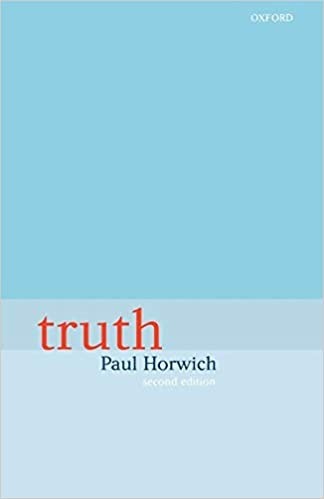
PH: I think that Michael’s line of thought here is fine, as far as it goes. But as it stands it leaves out a crucial and questionable assumption:-- namely, that truth actually does play a substantive explanatory role in some plausible theory of logic, or meaning, or belief norms, or some other matter. Absent a demonstration of this – absent some evidently good theory in which truth is not just a device of generalization – then to speak of deflationism robbing us of a valuable tool is to beg the question.
In my book, Truth, I argue on a case-by-case basis that none of the above domains provides an example to support the anti-deflationist position. Presumably, Lynch has objections to some of those arguments of mine, in which case the issue will turn in part on how persuasive those objections are.
But another point worth mentioning (see my answer to question 2) is that a strong positive case for deflationism resides in its association with a compelling account of why we have the notion of truth, of its useful function. I think that this should make us highly suspicious of any theory whose use of the term “true” goes beyond that function. Of course, deflationism cannot preclude someone’s deciding to use the word “true” in a new and technical and substantive sense within an explanatory theory. But even if that theory turns out to be a good one, it won’t really be truth that’s doing the substantive work, but rather some other property with the same name
3:16: You’ve made important contributions to understanding the topic of scientific theory choice. You argue against an instrumentalist approach don’t you? Can you say something about this?
PH: Instrumentalists about science (also known as “fictionalists” or “constructive empiricists”) tend to suppose (i) that theoretical statements about some hidden underlying reality (e.g. electrons) cannot be justifiably believed, but (ii) that this skepticism need not and should not affect the useful practice of making and relying on such statements, since one can perfectly well use a theory in just the way one would if one really believed it but without actually believing it.
My objection to this idea was (and is) to its presupposition that the attitude of genuinely believing a theory requires more than believing its observable consequences, being disposed to assert it, trying to ensure its consistency with one’s other theories, and perhaps doing other things with it that the instrumentalist is happy to let continue. But I would suggest on the contrary that the state of “believing” is defined by these central components of its role in our conceptual economy. – In which case, what the instrumentalists recommend is impossible. We simply can’t act in the most fundamental respects as though we believed our scientific theories but without really doing so. And the instrumentalists who maintain they are in fact doing this are simply mistaken – they are confused about what it takes to have a belief.
3:16: So what is the approach you prefer?
PH: I’m not myself at all tempted by forms of philosophical skepticism in the first place; so I don’t need a way of trying to head off their unpalatable practical implications. Paraphrasing a remark of Wittgenstein’s: to believe something without being able to provide any justification (e.g. an argument) for doing so, is not necessarily to believe it irrationally. In particular, one can and should suppose that the rules we follow in inferring theoretical conclusions from observable data are amongst the fundamental principles of rationality. – Support for them is neither possible nor necessary.
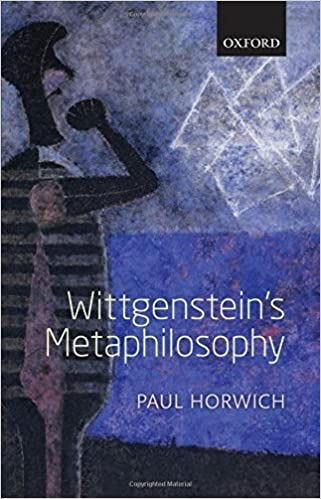
3:16: You’ve recently been developing thoughts about Wittgenstein’s meta-philosophical development. You wrote an essay about this back in 2004 and I guess you've not stopped thinking about this stuff. So first of all, what do you mean by Wittgenstein’s meta-philosophy’?
PH: I mean his critique of the dominant approach within western philosophy, and his proposal for what should be done instead. The approach he opposes rests on an implicit assumption that just as the scientific method takes us from empirical data to profound and sometimes radical theoretical discoveries, so the philosopher can reasonably expect her intuitive a priori data and science-like considerations of simplicity and explanatory power to deliver such desirable results as well (about, for example, the basic a priori structure of reality, how to live one’s life of life, the existence of free will, etc.).
Wittgenstein thinks that this traditional ‘scientistic’ approach to philosophy is irrational, and that our job should be both to understand in general why this is so, and to expose the various topic-specific ways in which that irrationality is manifested. Instead of responding to philosophical puzzlement with a theory, we should be identifying and rectifying the mistakes of overgeneralization which engendered the problem to begin with.
3:16: You take the view that the ‘Philosophical Investigations’ and the ‘Tractatus’ are continuous. You wrote of Wittgenstein in the 2004 essay: [H]is meta-philosophy is what is central and revolutionary. It does change somewhat -- an incoherent element is removed from it … [B]ut the correction in his core meta-philosophical position is small in relation to all that is retained: namely that philosophical questioning is provoked by linguogenetic confusion, that it should not be straightforwardly answered, and that it cannot yield philosophical knowledge. Thus the Tractatus and the Investigations represent improving expressions of one and the same hyper-deflationary insight. (p. 171). So firstly, is this a version of the Cora Diamond thesis, and aren’t there scholarly problems with that reading that suggest we should drop it?
PH: According to the “standard” interpretation of the Tractatus – which I myself more-or-less endorse -- Wittgenstein’s overall position there is deeply inconsistent insofar as he both attacks philosophical theorizing and himself advances theoretical claims about the a priori structure of reality, the nature of representation, and the hidden logical structure of language, And to make matter worse, his attack rests on those positive claims. But the good news (I would say) is that Wittgenstein came to recognize this fatal flaw and formulated (in his Philosophical Investigations) a refurbished anti-theoretical metaphilosphy which was no longer self-undermining.
Cora Diamond adamantly disagrees with this assessment. Her view is that Wittgenstein’s Tractatus is perfectly consistent and that its many theoretical propositions must not be viewed as assertions on Wittgenstein’s part, but rather as tempting ideas whose untenability is eventually exposed.
For my taste, Diamond’s reading is too contrived -- too far from the most straightforward way of reading the book. In addition, if she were right it would be hard to see why he would refer, in the Investigations, to the mistaken opinions espoused in his earlier work and go on to give a systematic critique of them –- his old doctrines concerning language, logic, meaning, and ontology. Could he really have forgotten that he never intended to espouse them?
3:16: What do you say to those who directly rebut the thesis that philosophical questioning can’t yield knowledge? They’ll say the nature of infinity, number, computation, formal systems, completeness and incompleteness are counterexamples that refute the therapeutic approach. Why doesn’t this strike you as a reason for rejecting Wittgenstein’s project?
PH: First, I think that defenders of the traditional approach to philosophy are under an obligation to explain why, after 2000 years, we have so little to show for our efforts in the way of solved problems and important discoveries. Why has science done so well and philosophy so badly? Might it not be that there is something misconceived about a priori philosophical theorizing?
Ok. Perhaps we do now have a better understanding than we used to have of various logical/formal/ mathematical matters. But is this the center of traditional philosophy? What about reality, knowledge, consciousness, freedom, person, moral value,...? Do we now know what they are? Have the notorious paradoxes surrounding them been resolved to nearly everyone’s satisfaction? Are we nearly there? I think the answer to these questions is clearly no. And the obvious next question is “Why not?”. Are we philosophers really too lazy and stupid (as Timothy Williamson has suggested)? It seems to me there’s a more promising approach. Since it’s pretty uncontroversial that philosophical puzzlement is often the result of confusion rather than ignorance, it’s worth exploring Wittgenstein’s idea that it always is.
3:16: Your theory of meaning is scientific, naturalistic. Philosophy is where Wittgenstein comes in, and is just a matter of clearing up confusions and misunderstandings. You characterize (as I suppose Wittgenstein does) this philosophy part as less than a theory. But what do you say to those who contend that despite intentions, this is a substantial philosophical theory, involving metaphysical claims that language is physical, that words have core uses capable of explaining all the word’s other uses; and that you suppose there is an actual literal semantic meaning distinct from speaker and pragmatic meaning?
PH: I think it’s plausible that Wittgenstein’s “definition” of meaning as use (to employ his term) really is just a definition; that it really is implicit in our use of the term “meaning”, implicit in our refusal allow that someone means what we do by a word if her basic use of it is deeply different from ours; that it’s no more of a speculative conjecture than is any other proposed definition (e.g. of “bachelor” as “unmarried man”); and so it isn’t a “theory” of the sort he thinks must be avoided.
Still, I do recognize that many philosophers will remain unconvinced – and all the more so if the view is elaborated along the lines I myself have recommended, as requiring “use” to be articulated non-intentionally and non-semantically, and as invoking “fundamental laws of use”.
However, it’s worth bearing in mind a fall back position that would both accommodate such misgivings and yet still cohere with a rejection of a priori philosophical theorizing.-- Insofar as the use-analysis of meaning is articulated in such a way as to make it a theoretical conjecture (and not just a definition), that conjecture would pretty clearly be empirical. For the reduction of ‘w’s meaning’ as ‘w’s basic regularity of use’ would be justified by evidence to the effect that the primary symptoms of a word’s meaning – namely, particular facts to the effect that such-and-such sentence-tokens containing the word are accepted in such-and-such circumstances -- are best explained by some basic regularity in its use (couched in non-semantic terms). Thus we would have an a posteriori constitution theory (on a par with ‘water is H2O’) – an account whose acceptance is perfectly consistent with Wittgenstein’s metaphilosophy.
3:16: How would you characterize Wittgenstein’s meta-philosophy as you battle to clarify it? Are there things you understand better now than you did when you first started examining this stuff and should we revise many of our views about what Wittgenstein tells us, in particular your work on providing a naturalistic reduction of semantics that links to his work in some ways?
PH: It’s clear that Wittgenstein’s metaphilosophy is critical rather than constructive. He is opposed to the traditional goals and methods of philosophy, and advocates no alternative beyond a therapeutic self-examination designed to expose their defects and loosen their hold on us. But this vague sketch must be filled out if it is to have any bite. First, since the term “philosophy” covers a wide variety of loosely related intellectual activities, we need to know which of them constitutes Wittgenstein’s target. What exactly is he against? Second, what is supposed to be wrong with it? Are its questions and answers supposed to be meaningless? Do they involve irrational presuppositions? Are its products worthless? Third what reason do we have to agree that the alleged defect (whichever of these it is) is in fact possessed by the form of philosophy at issue. And fourth, how can we be sure that Wittgenstein’s own critical philosophizing will not share that defect. Unfortunately, besides a few cryptic hints, Wittgenstein does not address these questions. – Which leaves a great deal to be done by whoever would attempt to offer a full articulation and defense of his position.
I can’t claim that the answers I offer in my book (see below) would be accepted by Wittgenstein himself – but nor do I think he wouldn’t accept them. Anyway, interpretational accuracy was quite secondary to my main goal there—which was to develop Wittgenstein’s cryptic remarks into a metaphilosophical position that is clear and defensible and worth taking seriously.
3:16: And finally, can you recommend five books that you think will help us investigate further your philosophical world?
PH: I’m not sure whether you’re asking me about books (including my own) that will help someone explore my philosophical perspective – or whether you are asking which books have been an inspiration to me.
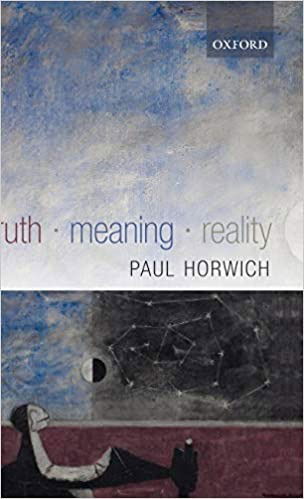
In the former category I would suggest my two most recent ones: Truth-Meaning-Reality and Wittgenstein’s Metaphilosophy.
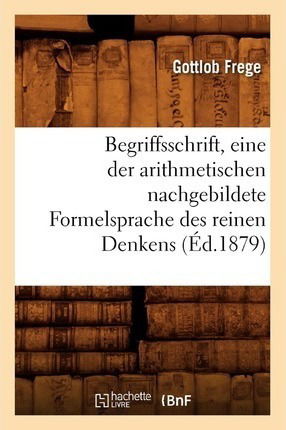
In the latter category I’d recommend Frege’s Begriffsschrift,
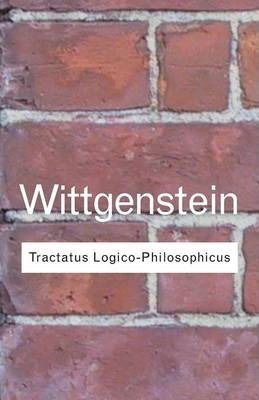
Wittgenstein’s Tractatus and
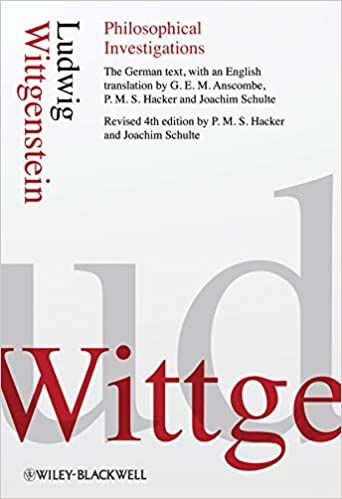
Investigations, and

Kripke’s Wittgenstein on Rules and Private Language.
ABOUT THE INTERVIEWER
Richard Marshallis still biding his time.